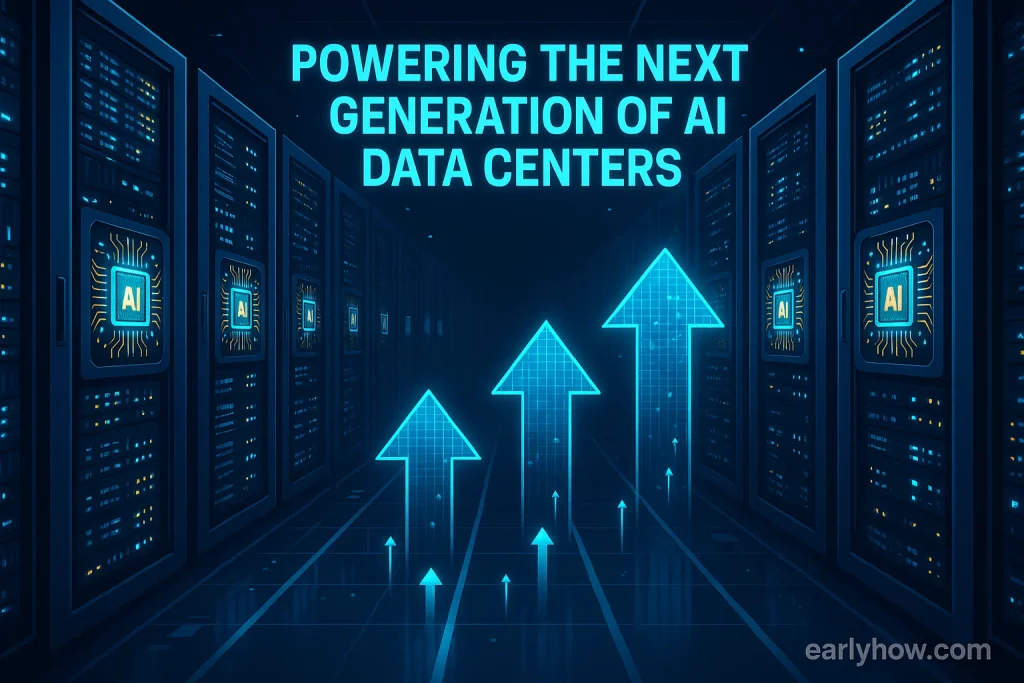Dell’s recent shift is more than just a reaction to trends—it’s a strategic play to become a key player in AI infrastructure.
The company’s new projection suggests a doubling of its prior growth expectations, attributed primarily to soaring interest in AI systems from cloud providers, enterprise IT departments, and data-intensive industries.
Behind the numbers:
- AI-Ready Servers are in high demand for training large models
- AI Networking Components are seeing accelerated uptake
- Enterprise Modernization is triggering mass hardware refresh cycles
Dell’s flagship AI server platforms, including its high-end multi-GPU systems, are being rapidly adopted by firms building private AI clouds and advanced machine learning stacks.
🔮 Looking Forward – Dell’s AI Roadmap
Dell isn’t just shipping hardware—it’s reshaping its identity around artificial intelligence.
According to internal strategy updates:
- The company is shifting its infrastructure lineup to prioritize AI processing capabilities
- It’s designing new configurations optimized for edge AI, LLMs, and multi-node training clusters
- Dell is partnering more deeply with chipmakers and AI software providers to deliver vertical AI stacks
This transformation reflects a wider trend across enterprise tech: moving from general-purpose hardware to AI-tuned systems that reduce latency, boost throughput, and scale easily.
🌐 The Macro View – Why This Matters Now
The enterprise AI wave is no longer just hype—it’s reshaping spending habits and IT priorities.
Market data shows:
- Global AI infrastructure spending is on track to reach $500 billion by 2030
- Companies are migrating from traditional servers to purpose-built AI systems
- Demand for scalable inference and training environments is outpacing supply
Dell is among several major OEMs capitalizing on this shift, but its recent momentum suggests it’s building a defensible lead in AI-grade infrastructure.
🧠 Final Insights
Dell’s aggressive forecast revision underscores one truth: AI is no longer a tech trend—it’s a fundamental infrastructure layer.
By aligning its product roadmap with the needs of tomorrow’s AI workloads, Dell is positioning itself not just as a server vendor, but as a central pillar in the AI economy.
For readers tracking the rise of enterprise AI, this could mark a pivotal shift in who builds the backbone of tomorrow’s intelligent systems.
Keep following EarlyHow.com for expert breakdowns of AI infrastructure, tool ecosystems, and industry shifts.
💬 What’s Your Take?
Do you think Dell can compete long-term in the AI infrastructure race?
Leave a comment below and join the EarlyHow AI conversation.



